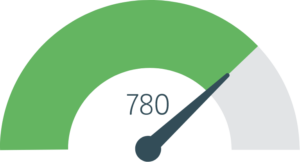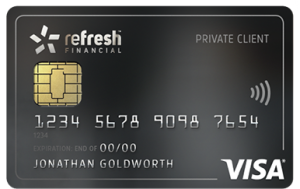6 ways to stop living paycheque to paycheque

Did you know that roughly 53% of Canadians live paycheque to paycheque?¹ It seems nearly impossible to stop living paycheque to paycheque. You pay your bills, buy some gas and groceries and BAM - your paycheque is practically all gone. It’s self-defeating when you can't get ahead.
Here are 6 ways to help you get out of the spiral of living paycheque to paycheque and start building a healthy financial future.
1. Reduce your discretionary spending and save
The easiest way to find extra money each month is to cut back on spending. Start by controlling your day-to-day spending and start building your savings. If you struggle with self-control, here are some tips for the impulse shopper who loves to spend money.
Also, follow these simple ideas to help you save money:
- Start making simple meals at home instead of eating out
- Plan a staycation instead of a getaway vacation
- Carpool or ride your bike during warmer seasons
- Shop around and switch to generic brands
2. Pay your bills on time and increase your credit score
All your bills have a due date, and you should pay them before or on the day they’re due. Doing this will help you save money, improve your credit score, and help you get better interest rates in the future. Most importantly, paying your bills on time will help reduce your stress!
Check out these quick tips:
- Sign up for autopay to take care of recurring bills like your rent and utilities
- Organize your bills by the due date
- Sign up to receive bill reminders by email
- Carve out a few minutes each week to review and pay your bills
3. Check your credit score
Your credit score affects a big part of your financial life. It’s a reflection of how responsible you are as a borrower. Lenders look at your credit score when they decide if they should loan you money.
If you plan to apply for credit or need to build your credit score, then consider checking your credit score every three to four months. Checking your credit score also helps you detect identity theft. You can check your credit score for free with Refresh.

4. Spend less than you make
It’s a good idea to figure out your monthly budget and keep track of how much money is coming in and how much is going out. There are some fantastic free budgeting apps you can use to help you spend responsibly. Spending less than you make will help you stop living paycheque to paycheque.
5. Manage your debt and build your credit
Here’s the good news; when it comes to debt there is good debt and bad debt. Prioritize paying your bad debt first. Types of good debt include a mortgage, student loans, and home equity loans. Bad debt generally depreciates over time and comes with a high-interest rate. So, a credit card, auto loans, and payday loans are bad because of the high-interest rates associated with them.
Here are some ways to manage debt of any size:
- Make a list of who you owe and how much
- Create a monthly calendar of your bills and when they’re due
- Prioritize each payment based on how it impacts your credit score
- Make your payments on time each month. Your credit score will drop if you don’t

Learn more about the Refresh Secured Visa Card
6. Save for emergencies
Life has unexpected twists and turns, and they seem to happen when you least expect them. It’s a good idea to have emergency savings set aside for at least three to six months just in case.
Emergency situations could include unexpected vehicle repairs, home repairs, job loss, or an illness that could result in additional expenses and missed income. You can’t control emergencies, but you can prepare for them. Here are some tips for building an emergency fund so that you’re prepared:
- Break down your savings goals into smaller steps
- Open a separate emergency savings account
- Set up automatic deposits into your savings account
- Use your emergency savings only in the case of an emergency
To continue to learn about managing your debt and credit score wisely follow Refresh’s Financial Blog.
¹ https://www.investmentexecutive.com/news/industry-news/53-of-canadians-live-paycheque-to-paycheque/
*******
Refresh financial offers custom credit building solutions to help you build your credit score FAST.







Leave a Reply